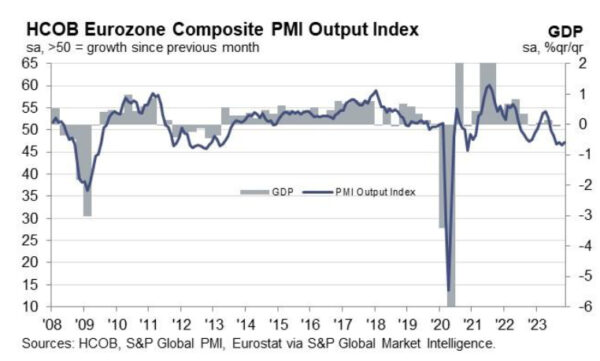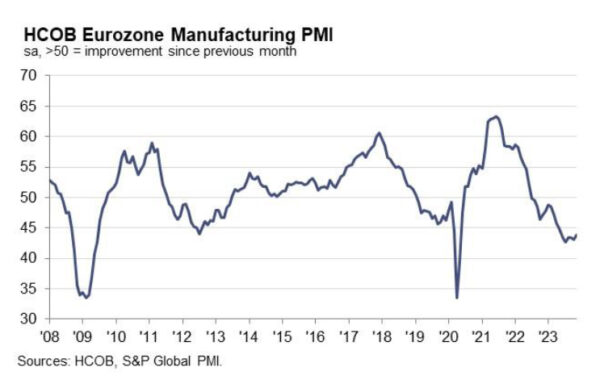Eurozone’s PMI data for November shows marginal improvement but continues to indicate broader recessionary trends. Manufacturing PMI increased slightly from 43.1 to a six-month high of 43.8, exceeding expectations of 43.4. Similarly, Services PMI rose from 47.8 to 48.2, marginally above the predicted 48.0. Consequently, Composite PMI, which combines both sectors, climbed from 46.5 to 47.1.
Cyrus de la Rubia, Chief Economist at Hamburg Commercial Bank, summarized the situation as, “The Eurozone economy is stuck in the mud.” Their nowcast model suggests the likelihood of a second consecutive quarter of GDP contraction, meeting the technical criteria for a recession.
Inflation remains a significant issue, particularly in the services sector, where price increases have accelerated due to “astonishingly rapid and even accelerating” rising input costs. De la Rubia attributes these cost increases primarily to higher wages.
The employment situation is also expected to worsen. Initially impacting industrial sector jobs, the economic downturn is poised to affect employment in services sector as well. This could lead to an uptick in Eurozone’s unemployment rate, which has so far been relatively stable.
Region-specific dynamics show contrasting trends within Eurozone. Germany’s composite index has improved, signaling some positive movement, whereas France continues to show a weakening trend. De la Rubia also points out the challenges faced by Germany, particularly in public investments due to restrictions imposed by the constitutional court’s debt brake, which relegate Germany’s economy “to the back seat in 2024”.


